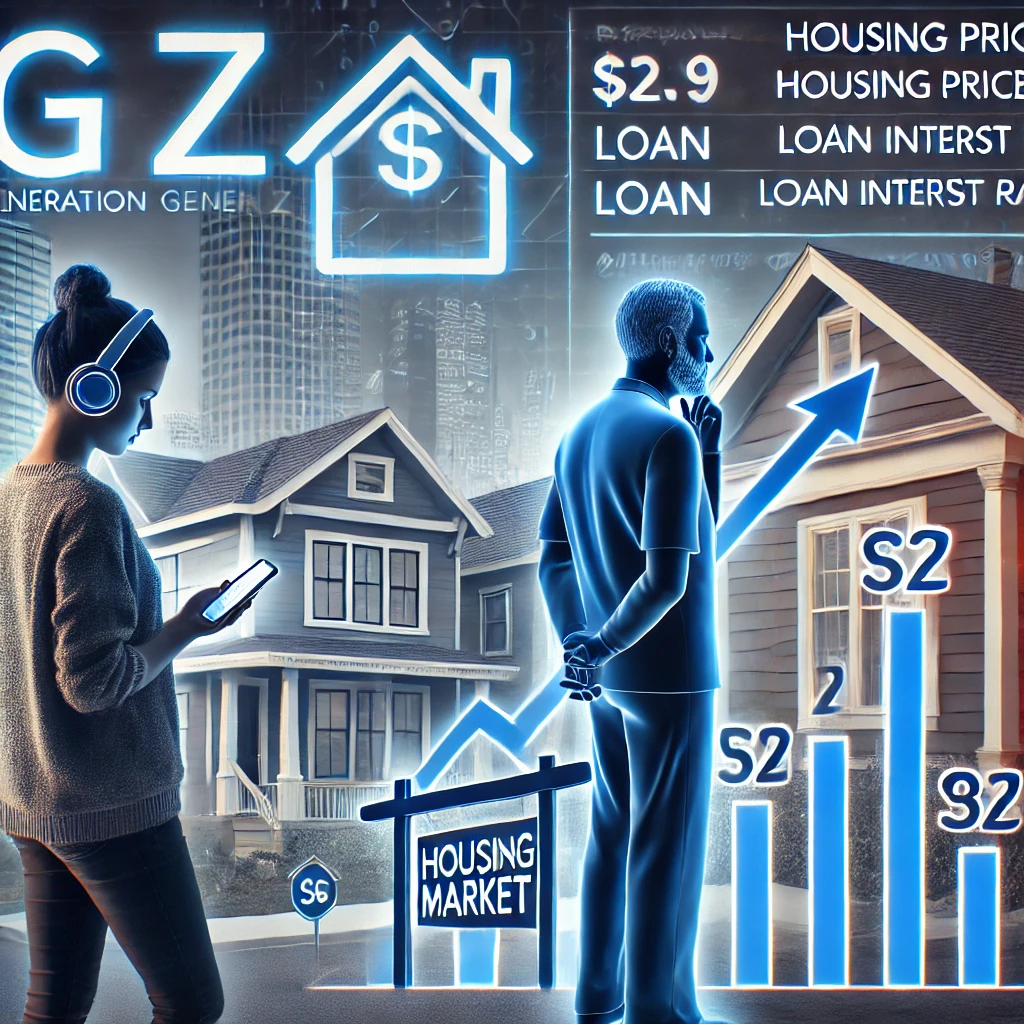As of this year, Gen Z (those born between 1997 and 2012) has officially surpassed the Baby Boomers (born 1946 to 1964) in terms of workforce participation, marking a significant demographic shift in the labor market. While this generational change represents a new era for many industries, the question arises: will Gen Z “save” the housing market? The simple answer is that, despite their growing numbers in the workforce, Gen Z is entering a vastly different housing market than the Baby Boomers did—and their impact is likely to be much more limited.

Here’s why:
1. The Housing Market Boomers Entered vs. Gen Z’s Reality
Baby Boomers came of age in a time of economic prosperity and post-war housing growth. In the 1960s through the early 1980s, homeownership was seen as the cornerstone of the American Dream. Interest rates were high, yes, but homes were relatively affordable compared to wages. The average cost of a home was much lower in terms of both nominal and inflation-adjusted dollars. For example, in the 1970s, the median home price was about $23,000, which translates to about $150,000 in today’s dollars—a figure far below today’s median home prices.
By contrast, Gen Z is coming into adulthood during a time of massive home price appreciation. The median home price in the U.S. is now around $400,000. Wages have not kept up with this inflation in home prices, and factors like rising interest rates, increasing student debt, and a lack of affordable housing inventory have further dampened Gen Z’s ability to enter the housing market as first-time homebuyers.
2. Affordability Crisis and Debt
One of the biggest obstacles facing Gen Z in the housing market is affordability. While Baby Boomers enjoyed an era of housing development and government programs that made homeownership accessible, today’s young adults are struggling with skyrocketing housing costs. Not only are home prices high, but rental prices are also eating into Gen Z’s ability to save for down payments.
Add to this the heavy burden of student loan debt, which disproportionately impacts Gen Z, and you have a generation that is less financially secure than Baby Boomers were at the same age. The debt-to-income ratio is a key factor in mortgage qualification, and Gen Z may struggle to meet the requirements to qualify for home loans, even with steady jobs.
3. Supply and Demand Mismatch
Another stark difference between the Baby Boomer and Gen Z housing markets is the inventory crisis. During the Baby Boomer generation, housing construction was booming, and there was a significant supply of new homes. However, since the Great Recession of 2008, housing construction has slowed, and demand has continued to outpace supply. This has resulted in a seller’s market where there are fewer homes available, and those that are available are priced at a premium.
Gen Z, with their limited purchasing power, is entering a housing market that is already oversaturated with competition and short on affordable options. This reality is unlikely to change dramatically in the short term, which means that while Gen Z may eventually become homeowners, they are not going to be able to “save” the housing market by stepping in and buying homes en masse, at least not in the near future.
4. Shifts in Values and Priorities
While Baby Boomers largely viewed homeownership as the pinnacle of success, Gen Z may have different values when it comes to property. Many Gen Z individuals are delaying major life decisions like getting married or having children, both of which historically have driven homeownership. They are also showing a stronger preference for urban living, flexibility, and remote work, which means renting may align better with their lifestyle choices in the short term.
Additionally, Gen Z may be more interested in alternative housing options like co-living, tiny homes, or even fractional ownership models that differ from the traditional path to homeownership. While these shifts may reshape the market in time, they are unlikely to revive the conventional housing market in its current form.
The Future of the Housing Market Isn’t Gen Z’s Burden
While Gen Z’s rise in the workforce is significant, it does not mean they will “save” the housing market in the same way Baby Boomers once fueled it. With affordability issues, crushing debt, and an undersupplied housing market, Gen Z is navigating an entirely different real estate landscape. If there’s going to be a “savior” for the housing market, it will likely come in the form of policy changes, innovative housing models, and shifts in economic conditions—not just from the buying power of Gen Z.
In the meantime, the housing market may continue to face challenges, and we should adjust our expectations for what “recovery” might look like in this new reality.